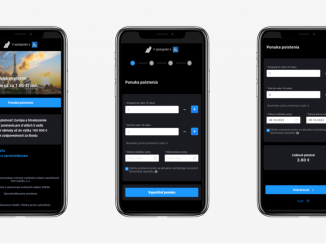
Insurance is designed to provide peace of mind, offering protection against unforeseen events. However, the reality is that disputes can arise between policyholders and insurers, particularly when it comes to claims. In Nigeria, navigating these disputes can be complex, given the specific legal and regulatory frameworks. Understanding the processes, knowing your rights, and taking the appropriate steps are crucial to successfully handling an insurance claims dispute. This guide provides a comprehensive overview of how to manage such disputes, offering practical advice and a detailed roadmap.
Understanding Insurance Claims Disputes
What is an Insurance Claims Dispute?
An insurance claims dispute occurs when there is a disagreement between the policyholder and the insurance company regarding the handling, settlement, or denial of a claim. These disputes can arise due to various reasons, including disagreements over the amount to be paid, the interpretation of policy terms, or the rejection of a claim altogether.
Common Causes of Insurance Claims Disputes in Nigeria
- Policy Interpretation Issues: Insurance policies are often filled with complex legal language that can lead to misunderstandings. Disputes may arise when there is a difference in the interpretation of the terms and conditions of the policy.
- Disputed Claim Amounts: Insurers may offer settlements that the policyholder believes are too low. Disagreements over the valuation of the loss or damage can lead to disputes.
- Delayed Payments: Insurance companies may delay payments for various reasons, including lengthy investigations. This delay can cause frustration and disputes, especially when policyholders urgently need funds.
- Denial of Claims: Insurers may deny claims based on various grounds, such as non-disclosure of material facts, policy exclusions, or allegations of fraud. Policyholders often dispute these denials, believing they are entitled to compensation.
- Fraudulent Claims: Insurers in Nigeria are vigilant against fraudulent claims, but sometimes legitimate claims may be wrongly categorized as fraudulent, leading to disputes.
Steps to Handle Insurance Claims Disputes in Nigeria
1. Review Your Policy Document
The first step in handling an insurance claims dispute is to thoroughly review your policy document. This document contains all the terms and conditions of your coverage, including what is covered, what is excluded, and the procedures for filing a claim. Understanding your policy is crucial to knowing whether your claim was handled appropriately by the insurer.
Key Points to Consider:
- Coverage Details: Check if the event or item you are claiming for is explicitly covered by your policy.
- Exclusions: Identify any exclusions that might apply to your claim.
- Claim Process: Review the procedure you were supposed to follow when filing the claim. Did you follow it correctly?
2. Communicate with Your Insurer
Once you have reviewed your policy, the next step is to communicate with your insurance company. Sometimes, disputes arise from simple misunderstandings that can be resolved through clear communication.
Tips for Effective Communication:
- Document Everything: Keep records of all communications, including emails, letters, and phone calls. This documentation can be vital if the dispute escalates.
- Be Clear and Concise: When explaining your position, be clear about why you believe your claim should be honored according to the policy terms.
- Request Clarifications: If something is unclear, ask your insurer to explain their decision in writing.
3. Escalate the Matter Within the Insurance Company
If your initial communication with the insurer does not resolve the issue, you can escalate the matter within the company. Most insurance companies in Nigeria have a grievance or complaints department specifically for handling disputes.
Steps to Escalate:
- Contact the Grievance Department: Provide them with all relevant documents, including your policy, claim form, and any correspondence.
- Formal Complaint: If required, file a formal complaint with the insurance company, detailing the nature of the dispute and what resolution you are seeking.
- Follow-up: Keep track of your complaint’s status and follow up regularly.
4. Utilize Alternative Dispute Resolution (ADR) Mechanisms
If the dispute remains unresolved, you may consider alternative dispute resolution (ADR) mechanisms. ADR can be a quicker and less expensive option than litigation.
Common ADR Methods:
- Mediation: Involves a neutral third party (mediator) who helps both sides reach a mutually acceptable resolution.
- Arbitration: A more formal process where an arbitrator (or panel of arbitrators) hears both sides and makes a binding decision.
- Negotiation: Direct negotiation with the insurer can sometimes resolve the issue without needing formal ADR processes.
5. Seek Legal Advice
If ADR fails or is not an option, seeking legal advice may be necessary. A lawyer specializing in insurance law can provide expert guidance on your rights and the best course of action.
When to Seek Legal Help:
- Complex Disputes: If the dispute involves large sums of money or complex legal issues.
- Persistent Denials: If the insurer persistently denies your claim without reasonable grounds.
- Legal Deadlines: If there are deadlines you need to meet to avoid losing your right to claim.
6. Report to the National Insurance Commission (NAICOM)
In Nigeria, the National Insurance Commission (NAICOM) is the regulatory body overseeing the insurance industry. If you believe your insurer has acted unfairly or violated regulatory standards, you can file a complaint with NAICOM.
How to File a Complaint with NAICOM:
- Prepare Your Documents: Gather all relevant documents, including your policy, claim form, and correspondence with the insurer.
- Write a Complaint Letter: Clearly outline your dispute, the steps you have already taken, and the resolution you are seeking.
- Submit to NAICOM: You can submit your complaint online through the NAICOM website or deliver it to their office.
7. Consider Litigation as a Last Resort
Litigation should be the last resort due to the time, cost, and complexity involved. However, if all other avenues have failed, filing a lawsuit against your insurer may be necessary to resolve the dispute.
Steps for Litigation:
- Consult a Lawyer: A lawyer will help you assess the merits of your case and guide you through the legal process.
- File a Lawsuit: If advised, you can file a lawsuit in the appropriate court. Be prepared for a lengthy process.
- Court Proceedings: The court will review the evidence, hear from both sides, and make a judgment.
Key Regulatory Frameworks Governing Insurance in Nigeria
Understanding the regulatory framework governing insurance in Nigeria is crucial when handling a dispute. The key regulations and laws include:
- Insurance Act 2003: This Act governs the operations of insurance companies in Nigeria, including the conduct of insurance business and the protection of policyholders.
- National Insurance Commission (NAICOM) Guidelines: NAICOM issues guidelines that insurers must follow. These guidelines cover areas such as claims handling, transparency, and dispute resolution.
- Consumer Protection Council Act: This Act provides additional protection to consumers, including those dealing with insurance disputes.
- Arbitration and Conciliation Act 1988: This Act governs the process of arbitration in Nigeria, providing a framework for resolving disputes outside the court system.
Best Practices for Avoiding Insurance Claims Disputes
While disputes are sometimes unavoidable, there are best practices you can follow to minimize the risk:
- Read and Understand Your Policy: Before purchasing an insurance policy, take the time to read and understand the terms and conditions.
- Accurate Disclosure: Provide accurate information when applying for insurance. Non-disclosure or misrepresentation can lead to disputes when filing a claim.
- Timely Premium Payments: Ensure that your premiums are paid on time to avoid any complications when filing a claim.
- Follow Claim Procedures: Adhere strictly to the procedures outlined in your policy when filing a claim.
- Keep Records: Maintain thorough records of all communications and transactions with your insurer.
The Role of Insurance Agents and Brokers in Dispute Resolution
Insurance agents and brokers can play a significant role in helping you handle claims disputes. They act as intermediaries between you and the insurer and can provide valuable assistance.
How Agents and Brokers Can Help
- Policy Interpretation: They can help you understand the terms of your policy and advise you on whether your claim is valid.
- Claims Filing: They can assist in preparing and submitting your claim to the insurer, ensuring that all necessary documentation is included.
- Negotiation: In the event of a dispute, they can negotiate with the insurer on your behalf to reach a fair settlement.
- Escalation: If needed, they can help you escalate the dispute within the insurance company or recommend ADR mechanisms.
Choosing the Right Agent or Broker
Selecting a reliable and knowledgeable agent or broker is essential. Look for individuals or firms with a good track record, proper licensing, and a reputation for putting their clients’ interests first.
You may also like: Guide to Choosing the Best Life Insurance Policy in Nigeria
FAQs: Handling Insurance Claims Disputes in Nigeria
1. What should I do if my insurance claim is denied?
- First, review your policy document to understand the reason for the denial. Then, communicate with your insurer to seek clarification or file an appeal. If the denial persists, consider escalating the matter within the company, using ADR, or seeking legal advice.
2. Can I file a complaint against my insurer with NAICOM?
- Yes, if you believe your insurer has acted unfairly or violated regulatory standards, you can file a complaint with the National Insurance Commission (NAICOM).

![Understanding the Nigeria Social Insurance Trust Fund (NSITF) [2024] 3 The Nigeria Social Insurance Trust Fund](https://erise.com.ng/wp-content/uploads/2024/08/Nigerian-Social-Insurance-Trust-Fund-326x245.webp)


Be the first to comment